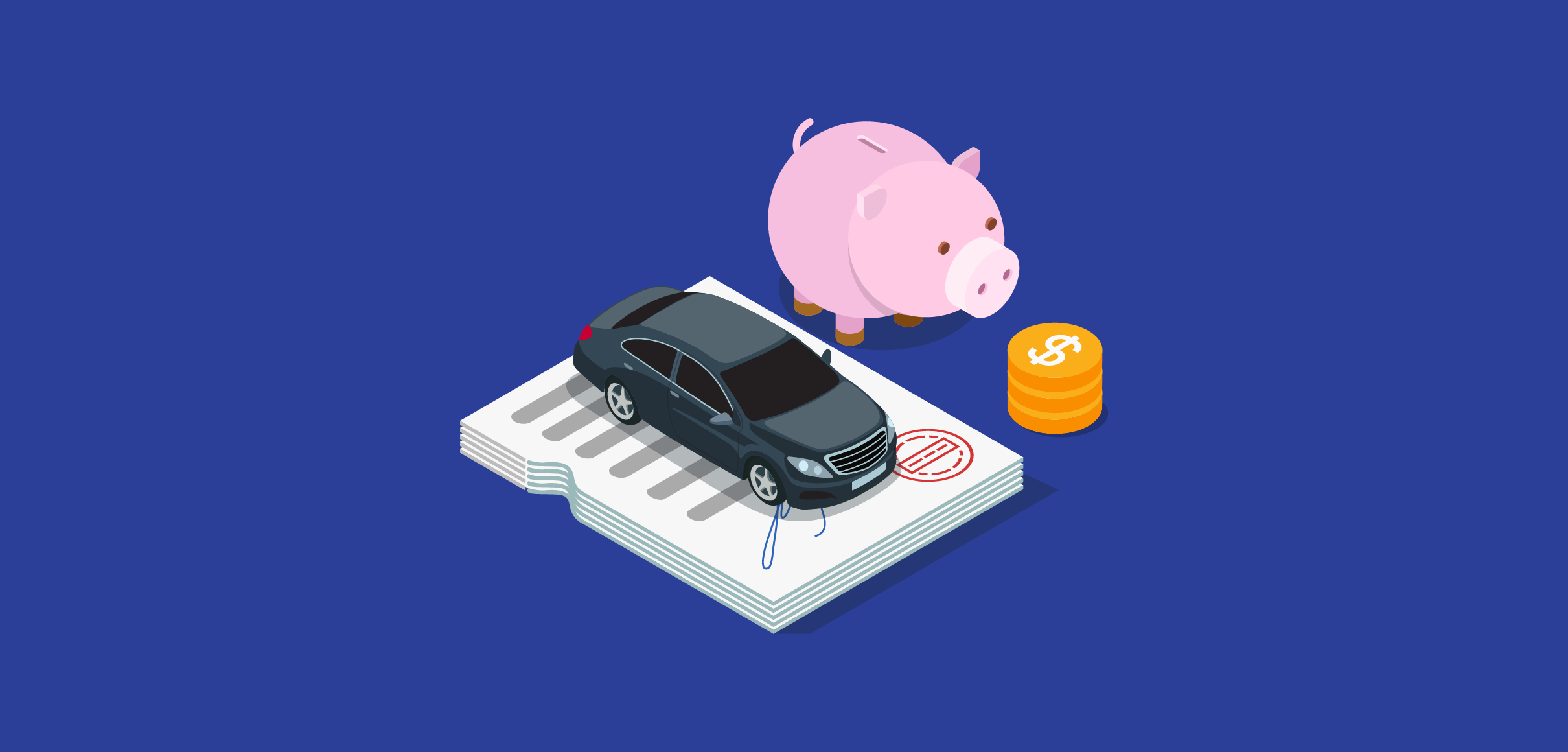You’re not happy with your car payment, but is refinancing right for you?
Whether you’re unhappy with your interest rate or you want a lower monthly payment, you might have options. Instead of trading in your vehicle or selling it, refinancing a car loan might be a better choice. However, there are costs and benefits associated with trying to refinance your vehicle.
Before you start shopping for a new lender, review this guide to the pros and cons of refinancing a car loan, as well as frequently asked questions about the process.
What Are the Pros and Cons of Refinancing My Car Loan?
While some people lease new cars or purchase their vehicles with cash, 85% of new cars and 55% of used cars are financed in the first quarter of 2019. Between 38% and 42% of cars are financed for five to six years and another 20% to 32% for six to seven years.
That means anywhere from 58% to 74% of people are stuck with the same interest rates and monthly car payments for more than five years — unless they choose to refinance.
The Pros of Refinancing Your Car Loan
Depending on a number of factors (your credit history, loan terms, and vehicle value, for example) you might find that refinancing your car loan has several benefits. The pros of vehicle refinancing include:
- Lower your interest rate: If the stock market is in a more favorable condition now or your credit score has significantly improved since you purchased your car, you might be able to secure lower interest rates that could reduce the total amount of interest paid on the loan.
- Reduce your monthly car payment: You might be able to lower your monthly payments by refinancing your car as a result of a more competitive interest rate, longer loan term, or both. This means you can use that extra money on your other financial goals.
- Improve your options: There are hundreds — if not thousands — of different auto lenders with a variety of features and benefits. You might find a lender that offers a discount for auto pay or is more lenient with late payment fees. Some lenders even offer loyalty programs with lucrative benefits.
Ultimately, refinancing your car should have some benefit to your financial goals. If it’s going to increase your loan costs and payments while taking away key convenience features, it might not be a good choice.
The Cons of Refinancing Your Car Loan
While there are benefits to refinancing a car loan, it’s not right for everyone’s situation. There are a couple of potential downsides to applying for a car refinance loan, like:
- Hard credit inquiry: Refinancing your car does require a hard credit inquiry (or hard credit pull) — unless you work with a “no credit needed” lender, which is not the best option. However, if you shop for rates within 14 days, your multiple credit inquiries should only count as one.
- Additional loan costs: Unless your credit is excellent and you refinance your vehicle with premium perks from your bank or credit union, there are costs to refinancing. You’ll most likely have a documentation or processing fee. You might also have prepayment penalties if you have a subprime auto loan.
- Extended loan payoff: Sometimes refinancing results in a longer loan term to save money on a monthly basis. However, this can lead to you to be upside down on the car loan and have negative equity, meaning you owe more on the loan than your car is worth. Not a good situation to be in if your vehicle is totaled.
You’ll need to weigh the pros and cons of refinancing your car loan carefully. It’s a good idea to calculate how much your current loan will cost you and how much the new loan will cost you for the most accurate comparison.
How Does Refinancing a Car Loan Work?
When you decide you want to refinance your car, you’ll be ready to move quickly. Follow these simple steps to refinancing a car loan without any extra stress.
1. Request a loan payoff from your current lender.
You’ll need to know this information for yourself so you can apply for the correct financing amount. You can often find this on your statement or in your online account.
This usually includes a payoff for that date or a specific date in the future. Some lenders might give a payoff that is valid for seven days, where others provide a payoff that is valid for 30 days.
2. Collect documentation about your vehicle.
Aside from your loan payoff, refinancing your car is going to require some other documentation in most cases — proof of insurance, vehicle registration and/or inspection, and pictures of the VIN.
You might not need this to qualify for the loan, but you’ll need this information to complete the refinancing process. You will need your vehicle mileage and VIN on hand to apply.
3. Apply for multiple loan quotes from the top lenders.
With so many refinancing options, it can be hard to know where to start. You want to look for lenders that have competitive interest rates and terms, as well as lenders that make the loan process easy.
It’s a good idea to get at least three quotes to compare. You want to compare key loan terms — interest rates and APR, length of the loan, and additional costs and benefits.
Where Can I Refinance My Car Loan?
Before you start your search for vehicle refinancing offers, you want to decide which types of lenders you want to work with. Your credit might dictate where you start, but the most common lenders include:
- Banks or credit unions: These are the most proliferate financial institutions, and banks and credit unions offer the most traditional loan terms and rates.
- Online loan platforms: You might want to use a web-based broker (like RateGenius 😉) that lets you get multiple offers at once.
You should start by reviewing your credit report and score to decide which type of lender you want to work with.
Frequently Asked Questions About Refinancing an Auto Loan
If you’ve never needed to refinance a car loan, there’s a lot you want to know. These are some of the most common questions people ask before refinancing their cars.
What happens when I refinance my car?
You’ll apply for the loan — or multiple loans so you can compare quotes — with your credit information and vehicle details, like your VIN, car features, and mileage. You’ll also need to let your new lender know who to send the loan to for the payoff. After you choose the best financing offer, you’ll sign contracts and commit to the loan payoff. Once your old car loan is paid in full, you’ll start receiving statements from your new lender.
Can I refinance my car with the same lender?
Maybe. That depends on a few things. First, does your lender offer vehicle refinancing loans? They aren’t available from every lender, and there might be restrictions on the age of your vehicle and mileage.
Second, what does your payment history look like with your current lender? Solid payment history will help you get approved for better rates than you currently have. Your lender will still require a credit check, so take advantage of the impact on your score by rate shopping and looking at a few other offers.
Does refinancing a car loan hurt my credit score?
Credit scores are complex, and there are a few things that do negatively impact your credit score — excessive credit inquiries, outstanding balances that are close to your credit limit, and, of course, making late payments. Since credit scores vary so much from person to person, it’s impossible to say how refinancing will impact your credit.
With a refinance loan, you will have a credit inquiry, a new account, and a loan balance. How a future lender views this in your credit application (along with your other information like your income, debt-to-income ratio, credit utilization, etc.) will depend on what type of loan you are trying to get and the lender’s own requirements. It can vary lender to lender, as well as the type of loan or credit you’re applying, for example, a credit card, personal loan, or mortgage.
How to Find the Right Car Loan Refinancing Offer
The right car loan refinancing offer depends on your financial situation. You need to carefully review your options and determine which will meet your goals.
About The Author
RateGenius
A better way to refinance your auto loan. RateGenius works with 150+ lenders nationwide to help you save money on your car payments. Since 1999, we've helped customers find the most competitive interest rate to refinance their loans on cars, trucks, and SUVs. www.rategenius.com
;)












